Some of the functions your body carries out without you even realizing
Amazing facts about our bodies
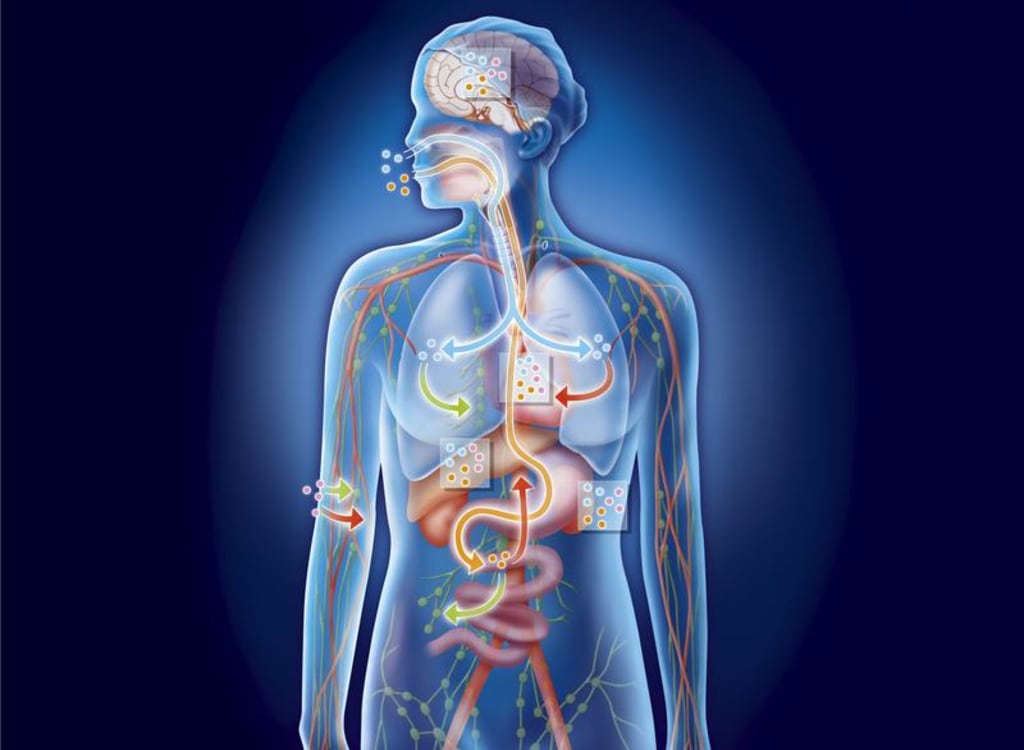
Why is it that a few taps on the forehead can serve as a test for the health of our nervous system? And why do we cough when we clean our ears with a toothpick? Today, I will be discussing the remarkable capabilities of the human body, which can be considered the most perfect machine known to us. Prepare yourself, as I will reveal 12 surprising functions that you may not have been aware of. I would like to inquire how many of you engage in foot tapping when feeling nervous. Please leave a comment and stay tuned until the end of the article to discover its significance.
01. Rem Atonia

Did you know that, on average, a person sneezes approximately four times a day? However, have you ever experienced waking up startled from sneezing while asleep? It is highly unlikely, and there is a scientific explanation for this phenomenon. It is known as the Rem Atonia Reflex, which inhibits the brain from sending signals during sleep. This reflex can be considered a form of temporary body paralysis, and it serves a beneficial purpose. Without it, we would physically act out our dreams, potentially leading to the need for sleeping in confined spaces instead of beds. The brain perceives sneezing during unconsciousness as a potential danger, hence it immobilizes our body when stimulated to prevent sneezing. Unconscious sneezing poses risks such as swallowing the tongue, colliding with objects due to sudden movements, and injuring the mucous membranes. Considering that the air is expelled at speeds of up to 180 km/h, it is crucial to prevent such occurrences. Therefore, if anyone claims to have sneezed while asleep, it is highly improbable. Instead, they likely woke up a moment before sneezing. Our brain possesses the remarkable ability to protect us, even from ourselves.
02. Lazarus Reflex

The Lazarus reflex, although resembling a phenomenon seen in horror movies, is indeed a real occurrence. It involves patients who have experienced brain death suddenly raising their arms, crossing them in front of their chest, and slowly returning them to their original position. This reflex can be quite shocking if it were to happen during a funeral. In the past, such events often frightened people, leading them to believe that the deceased individual was possessed by a demon. In cases of brain death, patients can survive for a few days if they are connected to life-support machines. However, since the brain remains dead and unable to control essential functions like breathing and movement, recovery is not possible. Current research suggests that the Lazarus reflex is a form of nervous arousal that occurs independently of brain control, but the exact cause of this phenomenon remains somewhat of a mystery.
03. Babinski
Neuroscientists employ various techniques to assess the health of our nervous system and overall well-being. One such method is the Babinski reflex test. This test involves gently scratching the foot from heel to toe using a pointed object. In a healthy individual, this stimulation typically results in the toes clenching. However, if the toes lift up and spread apart instead, it may indicate potential inflammation in the brain, a spinal injury, or even the presence of a tumor. It is important to note that the Babinski reflex test is just one tool among many that neuroscientists utilize to gather information about the nervous system and potential underlying conditions.
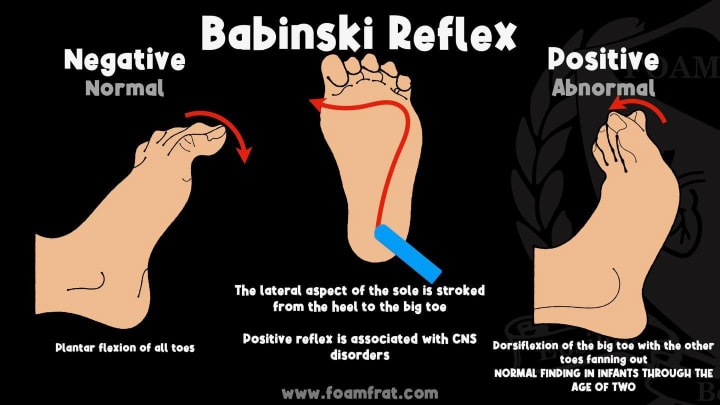
04. The Chills
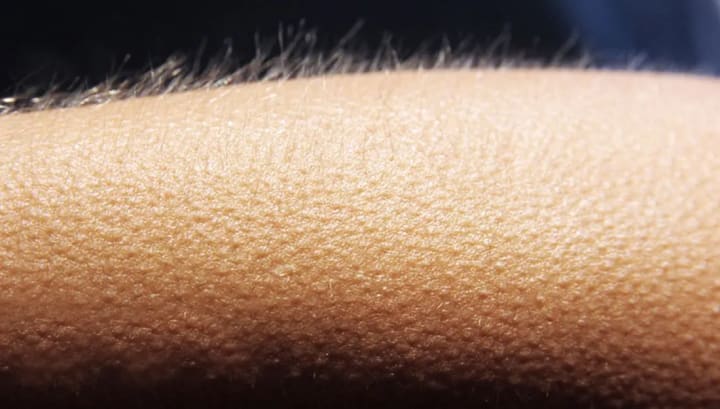
The sensation of chills is a common experience that we encounter in various situations throughout life. It can occur when we feel extremely cold, become excited, listen to certain types of music, or get startled by something. This physical response is characterized by the elevation of hairs and the appearance of small pimples on the skin. The mechanism behind this reflex involves a muscle called the arrector pili, located at the base of each hair follicle, which causes the hairs to stand up. The occurrence of goosebumps is believed to be a remnant reflex from our evolutionary past when humans had more hair, and the raised fur served as a visual signal of increased threat or aggression. There is no information available within the provided context regarding the specific study or evidence that supports the claim that one in 1,500 people can voluntarily bristle without external stimulus. Additionally, the notion that this ability indicates an evolutionarily extinct feature and suggests that humans may cease to bristle in the future is speculative. It’s important to rely on scientifically validated research and evidence when discussing evolutionary traits and potential changes in human physiology.
05. The Glabella
The area between our eyebrows, known as the glabella, can be used to test reflexes. By lightly tapping it with your finger, you may feel a slight tension building up in your eyes, which can be relieved by blinking a few times. If you experienced this sensation, it suggests that your nervous system is functioning properly. It is not uncommon for some individuals to also experience itchiness in the nose or tension in the teeth during this process. These sensations are considered normal and can be seen as indicators of a well-functioning nervous system. There is no need to be concerned.
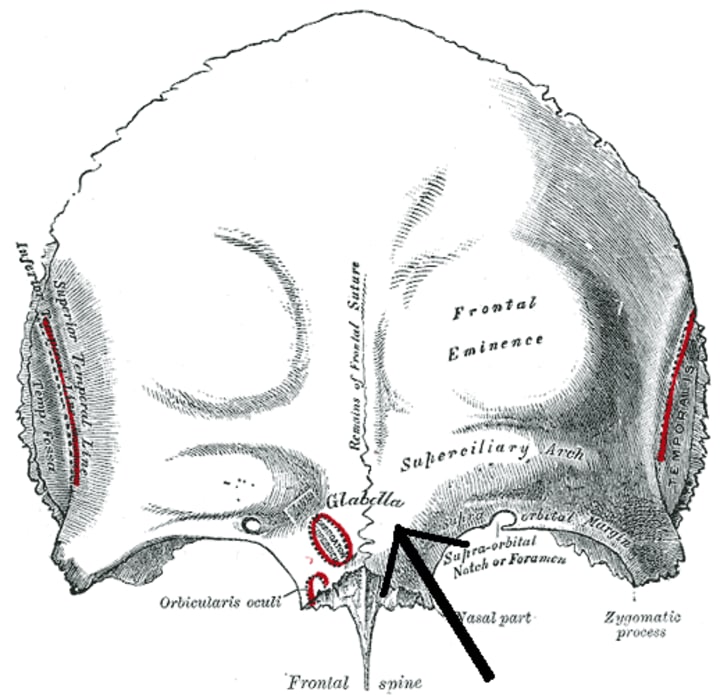
06. Arnold Reflex
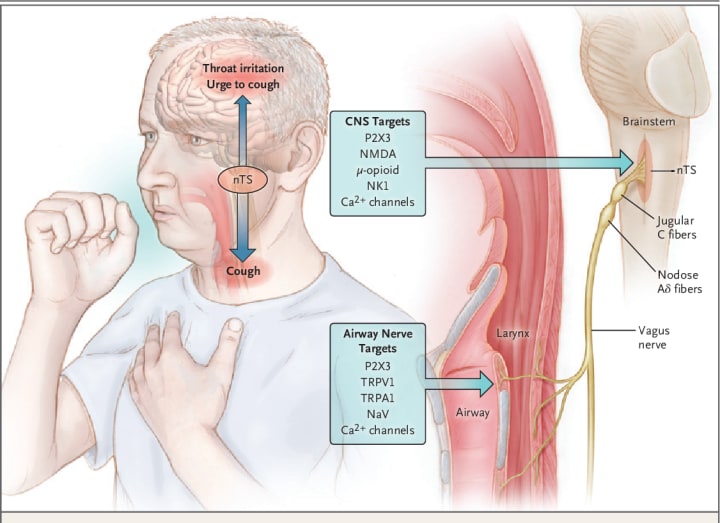
Have you ever experienced an instinctive cough while cleaning your ears with sticks, as if something is irritating your throat or lungs? This phenomenon is known as the Arnold reflex. The cause of this peculiar reaction is the stimulation of the vagus nerve, which extends from the ear canal to the lungs. When the nerve is stimulated by the stick, it triggers spasms and leads to coughing. Although coughing is typically associated with illness, this reflex actually indicates a healthy nervous system. In some cases, a buildup of earwax or other objects in the ears has been found to cause a persistent cough that lasted for weeks until doctors identified the issue in the ears. This highlights the interconnectedness of our body, where discomfort in one area can affect another. It’s a familiar experience, isn’t it?
07. Foot tapping

Do you ever find yourself nervously tapping your feet when you’re bored or have been sitting for a long time? Well, there’s actually a medical term for it called restless leg syndrome. Surprisingly, about 15–20% of the population experiences this condition, often linked to our body’s desire to release pent-up energy. It’s interesting to think about how frequently we’re obligated to sit down when we’d much rather be active. Whether it’s at school, in the office, or during long travels, we often spend endless hours sitting, longing to get moving again.
08. Our sense of smell is a time machine
Did you know that our sense of smell has the power to evoke stronger emotions and memories than any other sense? It’s pretty amazing! Have you ever experienced that peculiar sensation when a smell instantly transports you back to a powerful memory, almost like déjà vu? Well, it turns out that the olfactory center in our brain holds the key to this fascinating phenomenon. This special center, nestled in the limbic system, not only helps us recognize specific scents, but it’s also connected to our emotions and acts as a storehouse for memories. It’s incredible how our sense of smell can unlock a treasure trove of sentimental moments!
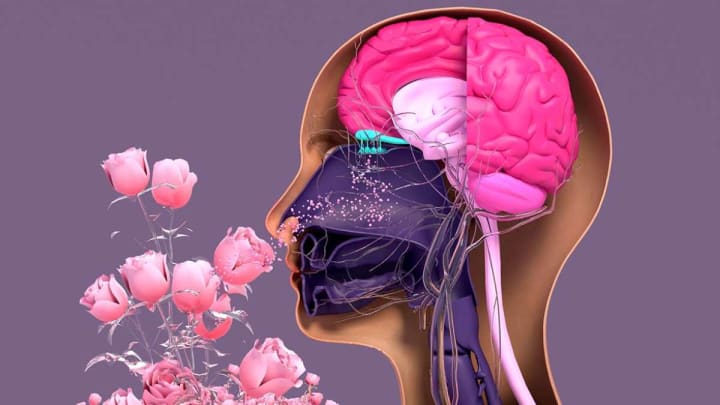
09. Autopilot

In 2017, scientists made an incredible discovery: our brains come equipped with an autopilot function! Have you ever found yourself driving home, only to realize you don’t remember much about the journey? Well, that’s your brain’s autopilot kicking in! When we engage in repetitive activities, like driving home, our brain takes over and completes the task without requiring our full attention. But here’s the mind-blowing part: even when we’re just lying down, doing nothing and thinking about nothing, our brain continues to run some of its operations and activity. It’s like having a behind-the-scenes team working tirelessly to keep things running smoothly, even when we’re not consciously aware of it. Our brains are truly remarkable, don’t you think?
10. Secretion
Guess what? Our bodies are like incredible fluid factories! Every day, we produce approximately a liter of saliva, which helps keep our mouths happy and healthy. But wait, there’s more! Without even shedding a tear, we naturally generate around 200 ml of tears daily. And that’s not all — our stomachs kick into gear by producing about 3 liters of stomach acid each day. And remember, that’s just the tip of the iceberg! We have even more secretions happening in other parts of our body, like the lungs, intestines, and pancreas. It’s truly amazing how our body takes charge of these important functions. Well, except for tears; our emotions can give our tear production a little boost. All of this intricate coordination is thanks to our incredible brain, which orchestrates these daily doses of fluids like the expert boss it is!
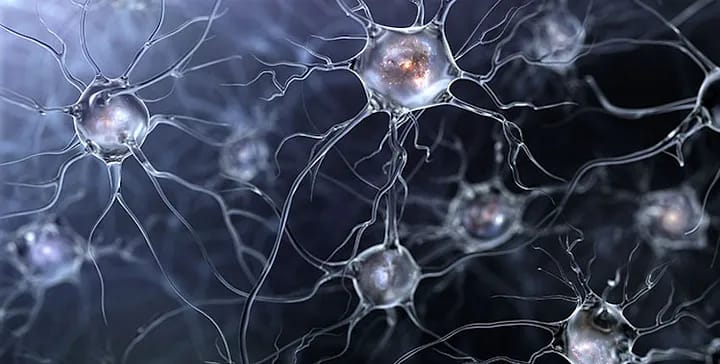
We have come to an end. I hope you enjoyed my article, see you next time!
About the Creator
Black Belt Barbie
Interesting choice of name, isn't it? The thing is my username has nothing to do with what I'm writing about :) Here you're going to explore variety of different stories, including articles that are going to shock you! Enjoy <3






Comments
There are no comments for this story
Be the first to respond and start the conversation.